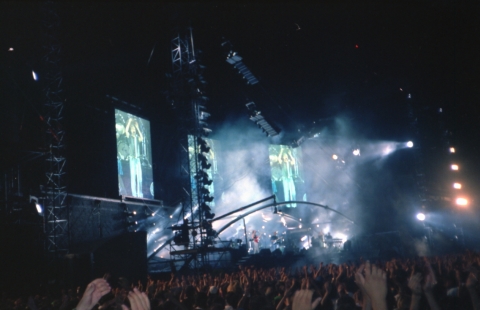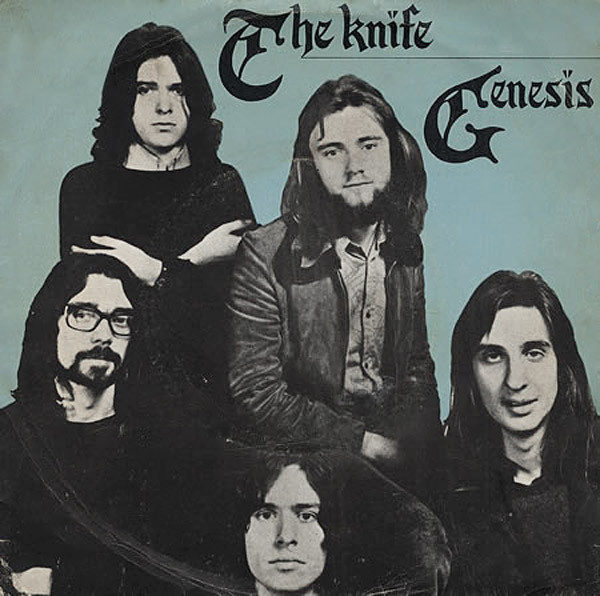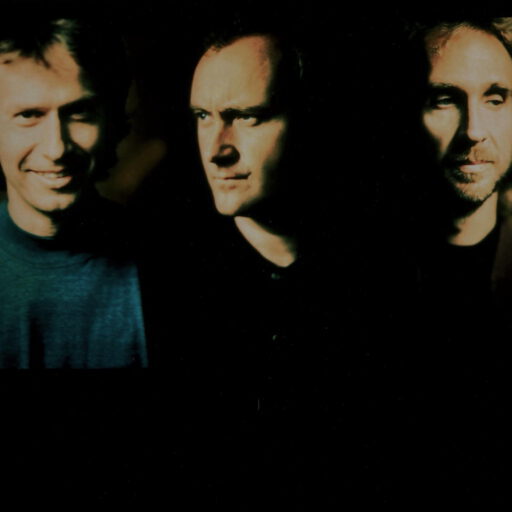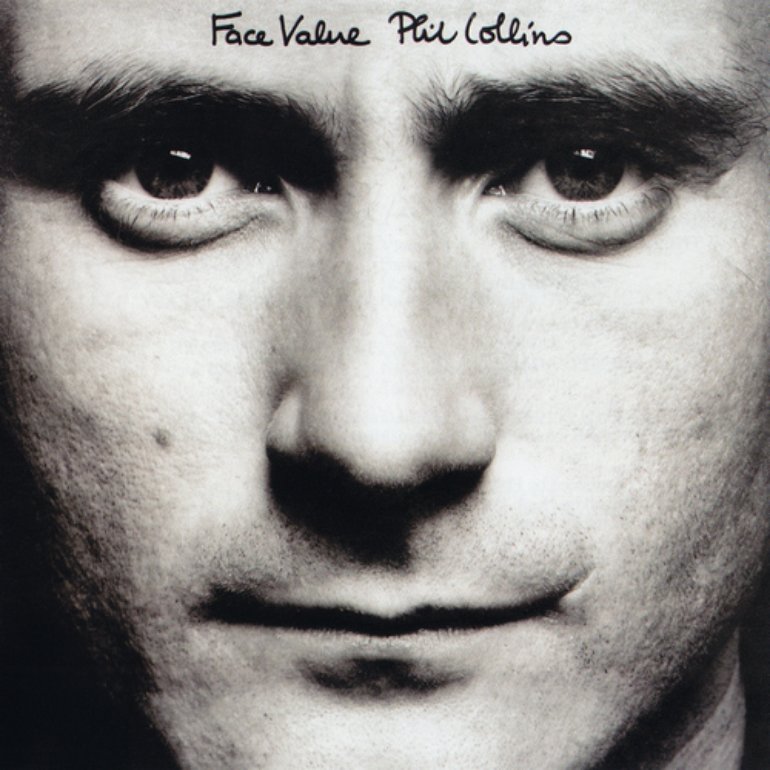On November 21, 1982, Phil Collins embarked on a bold new chapter in his career: his first-ever solo concert. Held in Den Haag, Netherlands, this performance marked the start of his Hello, I Must Be Going! tour, a tour that defined his journey from Genesis drummer and vocalist to a global solo star.
Continue reading “Phil Collins’ First Solo Concert”Phil Collins’ last gig with Genesis at Cowdray Ruins on 18 September 1993
On 18 September 1993, Genesis played their last gig with Phil Collins at Cowdray Ruins before he left the band.
Genesis in 1993
1993 was a quiet year for Genesis. In 1992, the group had been on their huge’We Can’t Dance tour‘ following their 1991 album We Can’t Dance*. 1993 saw them returning to their solo projects. Phil Collins’ marriage to his second wife Jill started to fall apart with the tabloid press publishing story over story about the family. Phil wrote and released his solo album Both Sides*, a very dark and angry and certainly his most personal album, which unfortunately did not go very well with the critics. In these turbulent times, Genesis only played one gig, when they resurfaced briefly for ‘a charity gig at Cowdray Ruins in aid of the King Edward VII hospice where they were joined by such rock alumni as Pink Floyd and the remaining members of Queen.’1
Queen performed a set of songs with Roger Taylor and Paul Young from Mike and the Mechanics on vocals. Then Genesis took the stage, but not with their regular live members Chester Thompson on drums and Daryl Stuermer on bass and guitar. Instead, Roger Taylor of Queen and Gary Wallis of Mike and the Mechanivs played drums for them and bass/guitar was played by Mike’s bandmate from Mike and the Mechanics, Tim Renwick, who also played with Pink Floyd.
Genesis’ reunion in the picturesque scenery among these famous headliners saw them playing ‘Turn It On Again’, ‘Hold On My Heart’, ‘I Can’t Dance’ and ‘Tonight Tonight Tonight’/’Invisible Touch’. According to some sources, they were also said to have played Phil Collins’s solo song ‘That’s Just The Way It Is’, but that is highly doubtable.
Next up was Pink Floyd who played some of their classic tracks from the 1970s, some also sung by Paul Young and with Mike on bass. Phil remembers: ‘The Floyd I’ve never loved apart from ‘Arnold Layne’. But we did this gig…I went to the sound check, and I was listening to the Floyd and a couple of the things they played I thought ‘I quite like that. There’s a couple of things in there that, you know. They show promise.”2
After Pink Floyd, Eric Clapton played a few songs (with Mike playing bass) and at the end, the ‘All Star Cowdray Ruins Band’, a band that featured everyone that had performed that night, played ‘Ain’t That Peculiar’, ‘Can I Get A Witness’ and ‘Gimme Some Loving’. YouTube videos and audio recordings of the show exist, but in a very low quality, which is a shame when considering this was Phil’s last gig with Genesis.
It was a successful, but ‘low-profile show’ and ‘few people would have ever believed that it was also Phil Collins’s final appearance with the band he’d now fronted for 18 unexpected years’3.
The show may have been one of the reasons for Phil to leave Genesis, as he remembers: ‘In the middle of my writing and making BOTH SIDES, Genesis did a concert with Queen. […] But I didn’t enjoy it … As I was singing these songs, it didn’t feel natural. Obviously, it was bad timing, going just like that from doing my most personal thing to a Genesis thing and back. But it definitely felt like ‘What am I doing here?’, like shoes that don’t fit anymore’.’4
Some time after this gig, Phil decided to leave Genesis, but his departure would not be announced until 1996. But that’s another story.
The line-up of the Cowdray Ruins band (according to the programme):
TONY BANKS: Genesis Keyboards
ERIC CLAPTON Guitar
PHIL COLLINS Genesis Vocals
JOHN DEACON Queen Bass
DAVID GILMOUR Pink Floyd Guitar
ADRIAN LEE Mike &. Mech Keyboards
NICK MASON Pink Floyd Drums
TIM RENWICK Mech./Floyd Bass/Guitar
MIKE RUTHERFORD Genesis Guitar/Bass
ROGER TAYLOR Queen Vocals/Drums
GARRY WALLIS Drums
RICHARD WRIGHT Pink Floyd Keyboards
PAUL YOUNG Mike &. Mech Vocals
Source: YouTube
Sources
Hewitt, Alan (2000): Opening The Musical Box. London: Firefly Publishing.
Platts, Robin (2007): Genesis. Behind the lines, 1967-2007. Burlington, Ont., Canada: Collectors Guide Pub.
Thompson, Dave (2005): Turn it on again. Peter Gabriel, Phil Collins & Genesis. San Francisco: Backbeat Books.
Title photo: Genesis in corcerto. Nizza – Luglio 1992 . Source: Wikimedia Commons, Valerio Ravaglia / CC BY (https://creativecommons.org/licenses/by/3.0).
* = affiliate links
How Phil Collins joined Genesis
In August 1970, Phil Collins joined Genesis as their drummer. This is the story of how he got the job with the band.
‘Looking for someone’
In the summer of 1970, Genesis had faced what is often described by them as the greatest loss in their career. Guitarist and founding member Anthony Phillips had left the band after they had recorded the album Trespass, partly because he suffered terribly of stage fright. With Ant gone, the remaining three members also decided to look for a new drummer. Up to that point, Genesis had already had three drummers. Searching for a new guitarist and a new drummer, the band anonymously placed ads in the famous music magazine Melody Maker: ‘TONY STRATTON SMITH [their then label manager, note of the author] is looking for 12-STRING GUITARIST who can also play lead; plus DRUMMER sensitive to acoustic music.’ One of these ads caught the eye of a young drummer from London: Phil Collins.
Phil Collins had previously played in the band Flaming Youth (they had been called ‘Hickory’ at first) and released one album with them. He had been unhappy because they were not successful and hardly played any gigs. Approaching a career as a professional drummer, he started looking for a new band he could join.
Auditioning for Genesis
Phil and his mate Ronnie Caryl, a guitarist, were both interested in auditioning with the band behind the ad. Having known their manager Tony Stratton-Smith from previous musical projects, Phil went to the Marquee Club, where he knew he would find ‘Strat’, as he was called, at the bar. He asked him if he could join this mysterious band, but Strat told him that the band was very adamant and insisted on auditioning new members. He also told him that the band behind the ad was Genesis. Phil knew their name from the gig announcements in the back pages of Melody Maker.
By this time, Genesis was a threesome: Tony Banks on keyboards, Peter Gabriel on vocals and Mike Rutherford on guitar and bass. ‘I rang up and I guess it was Peter Gabriel who I spoke to’, Phil recalls. ‘He said ‘Yes, uhm, come down to my parents’ house in Chobham.”
Peter Gabriel was impressed when Phil mentioned that he had played with George Harrison. Later he and the rest of the band found out that Phil had only played tambourine on a George Harrison session, but it helped him get the audition.
Then, on a hot summer’s day, Phil and Ronnie drove to Peter Gabriel’s family home, a country house near Woking with a swimming pool and farms surrounding it.
According to Phil, Mike Rutherford wore a dressing gown, looking like a crushed velvet smoking jacket à la Noel Coward, and slippers (Mike insists that he wore swimming trunks and a dressing gown because they were by the pool). Peter Gabriel seemed a little bit eccentric to Phil, and Tony did not say much but had the appearance and demeanour of a ‘tortured artist’, as Phil put it.
Phil and Ronnie had arrived early and there were still some drummers auditioning before him. He was invited to have swim in the pool while waiting.
‘Being there early and having two or three drummers ahead of me, I didn’t know what the conversation was, what they were saying to each other, but I could hear the music’, Phil remembers. ‘The same piece of music being played two or three times and the same piece of music being played with the next guy two or three times. So by the time I came up to play, I kind of felt I knew what I was doing.’
The band had given the drummers pieces from their repertoire that represented the various styles Genesis was playing at the time. It was a mixture of lighter passages, heavier passages and of course, very experimental passages. When it was Phil’s turn, they played him the album Trespass in the house’s living room. Phil felt that the music was very soft and immediately liked the harmonies (a feature in Genesis music that would disappear in their later works), which reminded him of Crosby, Stills & Nash. Phil later said that he would have joined them even if he had not liked the music because he was a professional drummer in search of work.
Having listened to the other drummers while swimming in the pool, he then played everything the band had prepared perfectly.
Peter Gabriel adds: ‘Just the way he sat down on the stool, I knew he was going to be good. Some people have this sort of confidence about what they do.’
When driving away, Ronnie said that he thought Phil failed the audition, but that he – Ronnie – had done a good job. As history proved, it was the other way round. Some time after the audition, Phil got the job and became a member of Genesis, while Ronnie did not. He had not been the right guitarist for their kind of music. Today, Ronnie Caryl actually still plays with Phil Collins in his solo band.
Impressions of Genesis
Having succesfully auditioned, the 19-year old Phil Collins joined Genesis in August 1970. At first, the band took a two-week holiday break and after that, they met to rehearse at Farnham Maltings, a place that Mike’s father had helped them to rent. There, they rehearsed for six weeks and wrote what was to become their album Nursery Cryme.
Purchase Nursery Cryme here on Amazon*
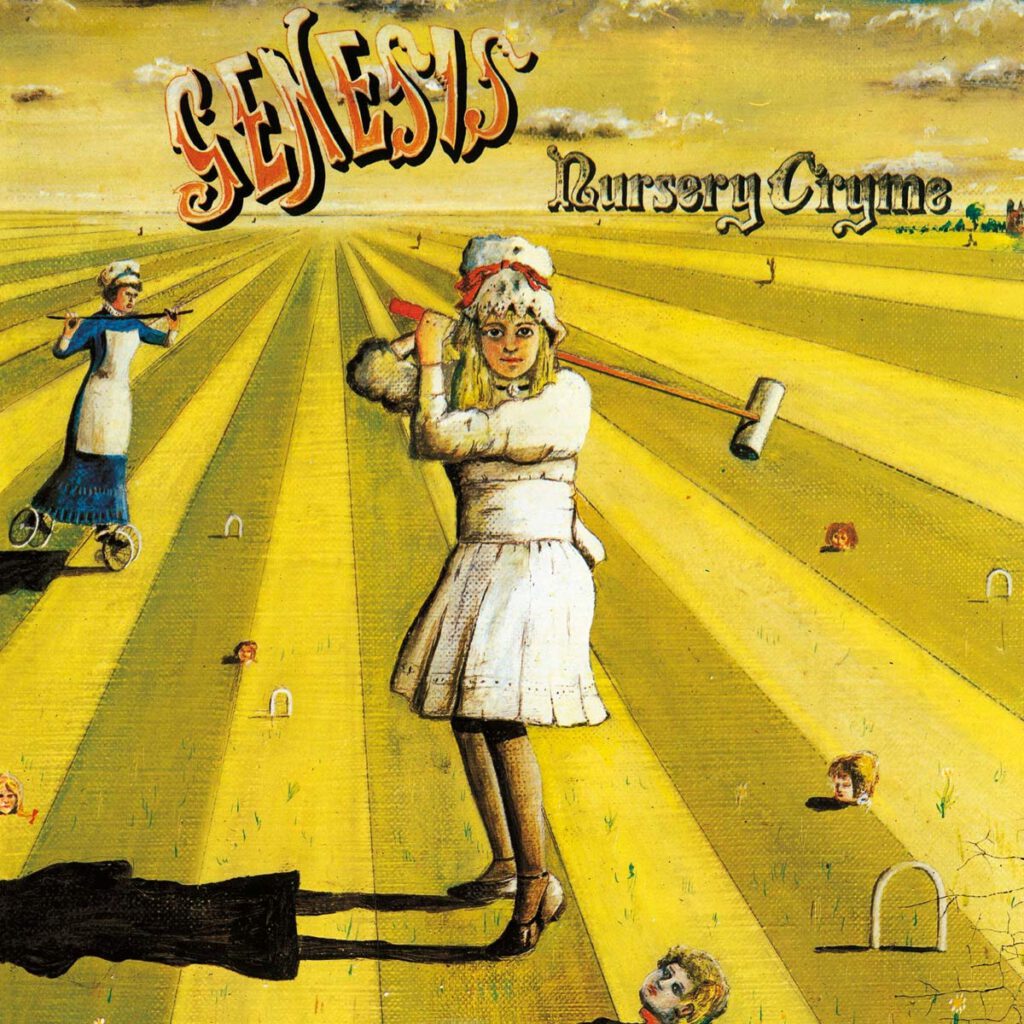
Coming from Grammar School and Stage School and being a working-class kid, Phil had a very different background than the ‘Charterhouse’-guys, who were upper-class public school boys. Phil realized they were very highly educated and very different to him; Tony Banks with his long hair reminded him of Beethoven. Also, he was irritated by Peter Gabriel’s bass drum that used to be right next to his microphone stand and that Peter just played whenever he felt like it, often completely out of rhythm.
At this point in their career, Genesis had released two albums and were preparing to write their third album. Very soon, Phil realized there was tension within the group. Especially Tony Banks and Peter Gabriel used to have arguments and – sometimes rather violent – disagreements.
‘In the middle of a conversation, suddenly someone would get up and slam a guitar on the floor and walk out’, Phil says. ‘I thought ‘What?’ Someone had said something to upset somebody else. Two hours later this person would come back and we’d start playing again. Suddenly there’d be ‘Oh, f*ck you’ and somebody else walked out. It was very highly strung.’
‘I would often be at loggerheads with Tony Banks’, Peter Gabriel explains, ‘and Phil would always sit on the fence, he would never want to come into the argument.’
Phil quickly realized that his different attitude and background not only had an influence on the music, but on the dynamics in the band too. ‘I saw it was my job to deflate these situations with humour, which the stage school background enabled me to do’, he says.
Genesis guitarist Mike Rutherford adds: ‘Apart from the humour, he’s got a very laid-back approach. He was very serious about his work, but had a very laid-back approach to life, which I think helped us a little bit.’ Mike also thinks that having auditioned at the Gabriel’s country house might have given Phil the impression that playing with Genesis would be a nice, relaxing job. In fact, they would spend their lives in the back of a van on the road for the next couple of years.
Title photo: Genesis – ‘The Knife’ (single cover).
Get “Genesis – BBC Broadcasts” here!*

Genesis Music on Amazon*
*= affiliate link
Sources
Phil Collins – A Life Less Ordinary (documentary, 2002)
Genesis – Sum of the Parts (documentary, 2014)
Philipp Röttgers – Two eras of Genesis? The development of a rock band (book, 2015)
Phil Collins’ Departure from Genesis in 1996
On March 28, 1996, Genesis officially announced Phil Collins’ departure in a press release titled: “Genesis end twenty-year experiment, decide to replace Peter Gabriel as vocalist.”
It marked the end of an era. But the story of Phil’s (temporary) exit began long before that.
Phil Collins Had Made Up His Mind in 1993
By 1993, Genesis were at their peak. The massive We Can’t Dance tour had wrapped up the previous year, and in the fall of ’93, the band performed at Cowdray Ruins, a charity concert alongside Pink Floyd, Queen, and Eric Clapton. Genesis played a short set and joined the all-star lineup for the encore. No one realized it would be Phil Collins’ last performance with the band for a long time.
At the time, Phil was already deep into writing what would become his most personal solo album, Both Sides. He played every instrument and produced the album himself, much like he had done on Face Value. The deeply introspective songs reflected his personal turmoil – his marriage to Jill was falling apart due to his affair with childhood sweetheart Lavinia Lang. With his family on the verge of breaking up again, he found it increasingly difficult to sing Genesis songs. He wanted to write and perform music that truly reflected his own emotions.
A New Chapter, a New Life in Switzerland
Sometime after the Cowdray Ruins gig, Phil confided in manager Tony Smith about his desire to leave Genesis. But Smith, ever the businessman, encouraged him to finish his solo album and tour first—then decide.
Phil embarked on the Both Sides world tour in 1994 and 1995, during which he met Orianne Cevey in Switzerland. Falling in love, he decided to leave England and settle in Lake Geneva. The British press harshly criticized him – both for his music and his personal life. He grew to resent his ‘Mr. Nice Guy’ image and felt increasingly distant from Genesis.
Tony Banks and Mike Rutherford Decide to Carry On
In 1996, the band convened in Tony Smith’s kitchen, where Phil finally made it official – he was leaving Genesis.
Tony Banks reacted with typical British understatement: “It’s a sad day, a very sad day.”
Mike Rutherford, on the other hand, was more surprised that Phil had stayed as long as he did given his highly successful solo career.
On March 28, 1996, exactly twenty years and two days after his first show as Genesis’ lead singer, the news went public. With Phil’s departure, Genesis lost not just their frontman and entertainer, but also a brilliant composer and drummer.
Still, Tony and Mike decided to continue, eventually searching for a new singer. Meanwhile, Phil focused on his solo career, though his success never quite reached the heights of the 1980s.
Despite going their separate ways, the three remained close. By the early 2000s, they occasionally reunited for special appearances. Then, a decade after Phil’s departure, Genesis officially came back together for the 2007 Turn It On Again tour.
But that’s another story.
Title photo: The world famous band – Genesis. Tony Banks, Phil Collins and Mike Rutherford. (Photo 1991) . Source: Wikimedia Commons, David Scheinmann / CC BY (https://creativecommons.org/licenses/by/3.0).
Phil Collins’ First Show as Genesis Frontman
In 1975, Peter Gabriel left Genesis, leaving the band without a lead singer. After auditioning several vocalists without success, drummer Phil Collins reluctantly stepped up to take on the role. He sang on A Trick of the Tail (1976), the band’s first album after Gabriel’s departure. But while he handled the studio vocals, he wasn’t eager to become the band’s frontman on tour.
This is the story of how Phil Collins took center stage.
Phil Collins Didn’t Want to Be the Singer
A Trick of the Tail proved that Genesis could continue without Peter Gabriel. The album was a success, and Phil’s vocals shone on both the heavier tracks like Dance on a Volcano and the softer moments of Ripples.
Yet, despite his strong performance, Phil had no desire to be the band’s singer. He saw himself first and foremost as a drummer.
‘I’ve always felt the singer was the cheapest gig in the band, ’cause all they had to do was look good and wiggle their bum,’ he later admitted. ‘I always wanted the most respectable part in the group, which was of course the drummer.’1
When it came time to tour the album, Phil hesitated. He agreed to take on the lead vocals under one condition: he needed a drummer he could trust. That drummer was his friend Bill Bruford of Yes, who joined Genesis for the tour.
On March 26, 1976, Genesis played their first show with Phil Collins as frontman in London, Ontario.
Could He Replace Peter Gabriel?
Fans knew from the album that Phil could sing, but how would he handle the older material? Fortunately, his voice was naturally similar to Peter Gabriel’s, and he had already sung backing vocals on many classic Genesis tracks. His performances of songs like The Lamb Lies Down on Broadway, Firth of Fifth, and Supper’s Ready proved he was up to the challenge.
The new material was also well received. On Robbery, Assault & Battery, Phil brought the song’s Victorian-era story to life with his acting skills, while the instrumental Los Endos became even more powerful live, thanks to the addition of a second drummer.
Bringing in Bill Bruford was the right move. As a respected figure in progressive rock, his presence reassured fans. His intricate playing added a new dimension to Genesis’ music. While Bruford and Collins played off each other in a more unpredictable way, later drummer Chester Thompson would lock in with Phil to create the band’s signature double-drumming style.
A Warm Welcome for the ‘New’ Singer
Genesis fans wanted this lineup to succeed – and they embraced Phil’s new role. He brought a down-to-earth charm and a touch of Monty Python-style humor to the stage. The band seemed more relaxed, with the spotlight no longer focused solely on the singer.
During I Know What I Like, Phil got the other members involved, playfully placing hats on their heads and sharing a mic with Mike Rutherford. He even debuted his now-famous tambourine dance.
Where Peter Gabriel had been the mysterious storyteller, Phil Collins was the approachable everyman. He didn’t weave surreal tales; he spoke to the audience directly. Even Peter himself later said he was happy that Phil took over, recognizing that Phil was a stronger technical singer and had a natural connection with audiences.
Phil was nervous that first night in London, Ontario, but the show was a success. Genesis continued with him as their frontman for the next two decades – except for a brief period in the ’90s when Ray Wilson took over after Phil’s departure.
But that’s another story.
Title photo: Mike Rutherford and Phil Collins of Genesis in 1977. Source: Wikimedia Commons, Jean-Luc Ourlin from Toronto ontario, Canada / CC BY (https://creativecommons.org/licenses/by/3.0)
- Genesis – A History ↩︎
Face Value (1981) – Phil Collins
In February 1981, Phil Collins unveiled his debut solo album, Face Value, marking a significant departure from his role as Genesis’s frontman. The album not only showcased Collins’s personal and musical evolution but also cemented his status as a prominent solo artist in the 1980s.
Genesis and Personal Turmoil
By 1978, Collins had transitioned from Genesis’s drummer to its lead vocalist. The band’s 1978 album, …And Then There Were Three…, featured the hit “Follow You Follow Me,” signaling a shift towards more concise and direct songs. During this period, Collins faced personal challenges; his wife, Andrea, threatened to leave due to his extensive touring commitments. Upon returning from a tour, Collins discovered that Andrea had moved to Canada with their children. Despite efforts to reconcile, including a move to Vancouver, the marriage ended in divorce.
Creation of Face Value
In the aftermath of his divorce, Collins channeled his emotions into music. He set up a home studio in Surrey, equipped with a piano, drum machine, and an 8-track tape recorder. Here, he began crafting demos that delved into his personal experiences. When Genesis regrouped to work on their 1980 album, Duke, Collins presented some of these demos. Two tracks, “Misunderstanding” and “Please Don’t Ask,” were included in the album. Encouraged by the positive reception, Collins decided to pursue a solo project, collaborating with producer Hugh Padgham to develop his demos into a full-length album.
Musical Diversity and Notable Tracks
Face Value is a tapestry of various musical styles, reflecting Collins’s diverse influences. The opening track, “In the Air Tonight,” is renowned for its haunting atmosphere and the iconic drum break that has since become legendary. The song’s lyrics were largely improvised, capturing the raw emotion of the moment.
Another standout track, “I Missed Again,” introduces a brass section featuring the Phenix Horns, known for their work with Earth, Wind & Fire. This collaboration infused the song with a vibrant, funky energy, a sound that would become a hallmark of Collins’s future solo endeavors.
The album also explores a range of genres:
“The Roof Is Leaking”: A track with Delta blues and country influences, adding to the album’s eclectic nature.
“You Know What I Mean”: A poignant ballad showcasing Collins’s vulnerability, accompanied solely by piano and vocals.
“Hand in Hand”: An instrumental piece blending jazz and world music elements, highlighting the talents of the assembled musicians.
Commercial Success and Legacy
Upon its release, Face Value received critical acclaim and achieved significant commercial success. The album topped the UK Albums Chart for three weeks and reached No. 7 on the US Billboard 200. It has since sold over 5 million copies in the US and over 1.5 million in the UK. The success of Face Value not only established Collins as a solo artist but also set the stage for a series of successful albums throughout the 1980s.
In retrospect, Face Value stands as a testament to Phil Collins’s ability to translate personal adversity into a universally relatable and sonically diverse album. Its enduring appeal lies in its raw emotion, innovative production, and the seamless fusion of various musical styles.

![Phil Collins on the cover of Live at Perkins Palace [1982]](https://genesis-band.com/wp-content/uploads/2024/11/Phil-Collins-on-the-cover-of-Live-at-Perkins-Palace-1982.jpg)
